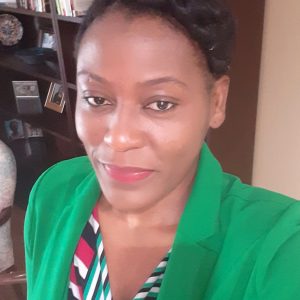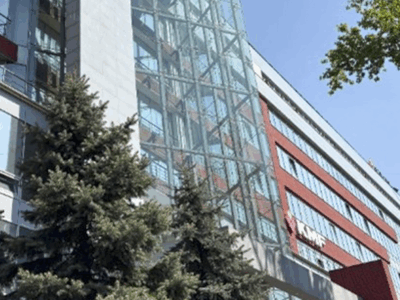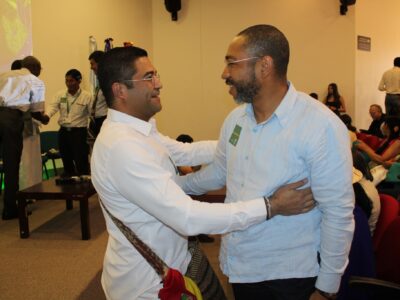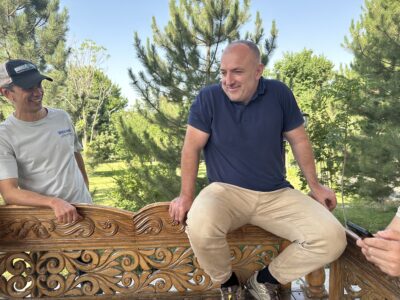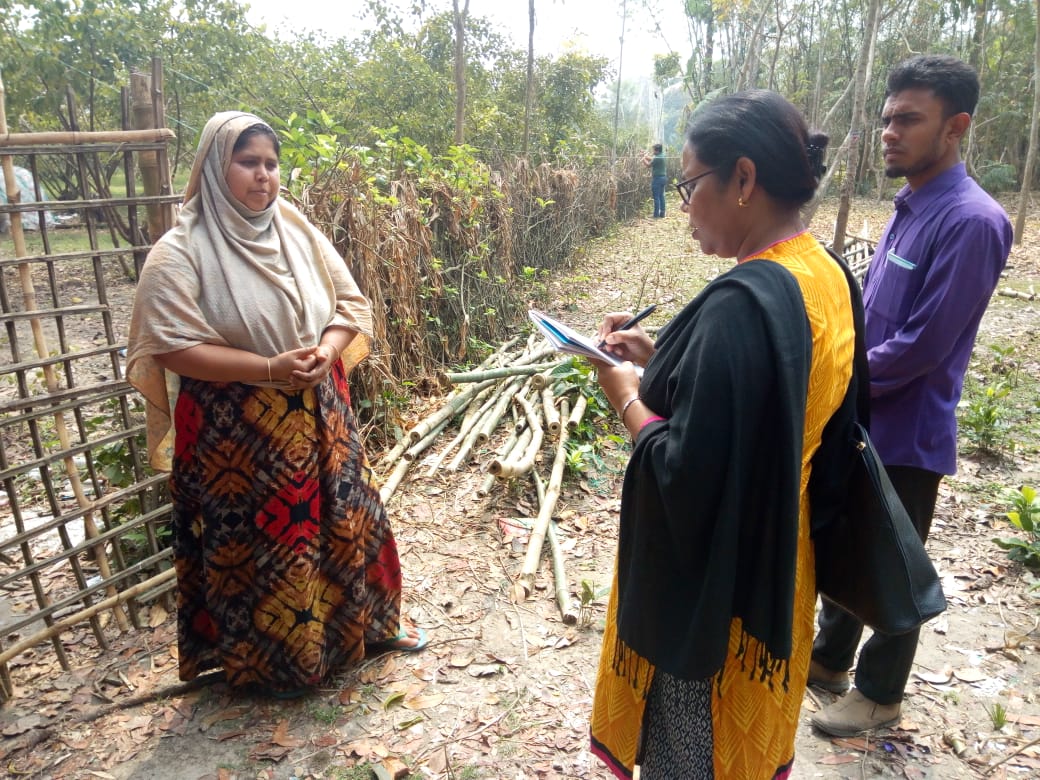
The Feed the Future Bangladesh Rice and Diversified Crops Activity partnered with Bayer CropScience Ltd. to train women as “ambassador farmers” and expand their female customer base
Gender equality is a central tenant of development progress in Bangladesh and the subcontinent. However, social norms in Bangladesh limit how women can access resources and services or participate in household or community decision making. These sociocultural norms also influence the private sector’s perception of women in agriculture, further constraining women’s access to economic markets.
Partnering with the Private Sector
To ensure that women benefit from its market systems development approach, the United States Agency for International Development Feed the Future Bangladesh Rice and Diversified Crops (RDC) Activity, implemented by ACDI/VOCA, is engaging the private sector. The RDC Activity aims to transform business relationships between companies, farmers, and others in the Dhaka, Khulna, and Barisal divisions of southern Bangladesh. By incorporating a gender-inclusive approach, the RDC Activity incentivizes companies to include more women in their business models. This shift toward inclusion is a major step toward achieving systemic change, especially given the untapped potential for female farmers to contribute economically.
Through its partnership agreements, the RDC Activity solicits business proposals that include mandates to improve gender inclusion. Its agreement with Bayer CropScience Ltd. illustrates just how remarkable the results can be when women are empowered to take on new roles.
Bayer CropScience Ltd. Includes Women in its Business Model
In 2017, Bayer CropScience Ltd. submitted a business proposal to empower farmers through its Crop Clinics (rural crop advisory points) to the RDC Activity. Upon reviewing the proposal, the RDC Activity determined that Bayer CropScience Ltd. did not target women as the company believed and that, although female farmers worked in vegetable production, they did not use crop protection products. With sales coming from crop care products and hybrid rice seeds, the company assumed its clients in Bangladesh were limited to field farming, an area dominated by men. Like many agricultural input companies, Bayer CropScience Ltd. did not consider that women may also need these inputs for farming at household level. On further investigation, Crop Clinic advisors revealed that women, though few in number, did visit the crop clinics for advice on vegetable cultivation. This information was new to the company’s senior management and led Bayer CropScience Ltd. to modify its proposal to target women (at least 10 percent) in their business model.
Women Ambassador Farmers Do What Few Men Can: Reach Other Women
Social norms affect the mobility and interactions of female farmers in Bangladesh. These norms prevent them from traveling outside of their villages to visit crop clinics or accessing the same advisory services and inputs as men. To reach more female farmers, Bayer CropScience Ltd. initiated a pilot of 17 new Crop Clinics in seven districts and 15 subdistricts. Each crop clinic served two farmers’ clubs, for a total of 34 clubs, each consisting of 20 men and 5 women. Both male and female farmers became “ambassador farmers” who promoted Bayer CropScience Ltd. products within their villages. As they took on unconventional roles, women ambassador farmers became positive influencers and engaged other women in the sector. By the end of the pilot, Bayer CropScience Ltd. had included 123 female ambassador farmers, making up 15 percent of farmers trained.
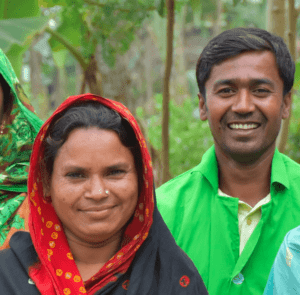
Adapting and Expanding the Model
After the success of recruiting women ambassador farmers, Bayer CropScience Ltd. began scaling up its Crop Clinics and gender centered approach. Seeing business volumes increase as more women became part of their business model, the company doubled its target to engage at least 20 percent women. This commitment from Bayer CropScience Ltd.’s senior management encouraged Crop Clinic advisors and territory officers to be more proactive in engaging women.
Sharmin Sultana became the leader of an all-female farmers’ club in Rohmat Bazar in the Kushtia District. She was essential in recruiting 25 female members. Her success in this role led to Bayer CropScience Ltd. investing in the sale of 200 kilograms of rice seed in her area during the 2020 Aman season.
By September 2020, Bayer CropScience Ltd. had supplied rice seeds and crop care products and services to 21 districts and 107 subdistricts in the Feed the Future zone. The company also achieved its goal of engaging 20 percent female ambassador farmers and customers. The success of the pilot motivated Bayer CropScience Ltd. Bangladesh to include female farmers in other special projects, such as its “Better Life Farming” initiative.
Mobile Clinics Reach Remote Areas During COVID-19
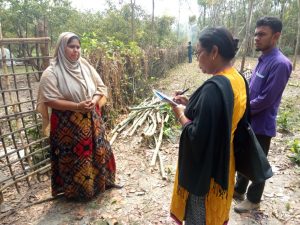
In 2019 Bayer CropScience Ltd. set up a permanent Crop Clinic in Patuakhali, adding to the village’s four existing mobile clinics. These mobile clinics allowed advisors to reach areas less accessible due to the unique geography of southern Bangladesh’s mangroves and waterways. When the COVID-19 pandemic began, these mobile clinics proved even more valuable and advisors extended their footprint to reach six additional villages which previously had not been serviced. With farmer mobility restrictions in place, in order to mitigate the impact and spread of COVID-19, the mobile clinics have played an invaluable role in ensuring continuity of access to advisory services and inputs. Furthermore, the mobile are able to reach women farmers at their households.
Inclusive Business Models Benefit the Private Sector While Advancing Women’s Empowerment
The long-standing partnership between Bayer CropScience Ltd. and the RDC Activity demonstrates that inclusive business models must be a part of sustainable economic growth, even in complex market systems like those of rural Bangladesh. The company’s model is likely to improve the incomes of female farmers as they gain access to advisory services, improved seeds, and crop protection products. The model has already increased confidence in women’s leadership roles, as women ambassador farmers, breaking barriers to reach underserved female farmers.
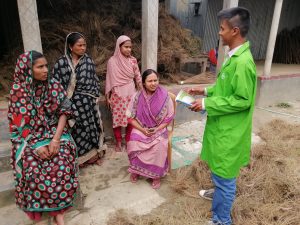
Access and leadership participation are two important dimensions of women’s empowerment in Feed the Future Activities in Bangladesh. Engaging the private sector makes both possible, as companies learn, adapt, and expand their business models to be more inclusive. By enabling Bayer CropScience Ltd. to tap into a new market segment of female farmers, the RDC Activity has demonstrated how the inclusion of women and profitability can go hand-in-hand.
This partnership is facilitated by Md. Johirul Islam, Channel Engagement Manager of Bayer CropScience Ltd. CropScience Ltd., and Delwara Khanom, Market Systems Manager and Farida Shahnaz Market Systems Specialist, of the RDC Activity.
This post was authored by Bidowra Khan, Delwara Khanom, Nathalie Me-Nsope, and Afifa Afrin.
Learn more about the Feed the Future Bangladesh Rice and Diversified Crop Activity.
Learn more about our work in Bangladesh.
Comments
